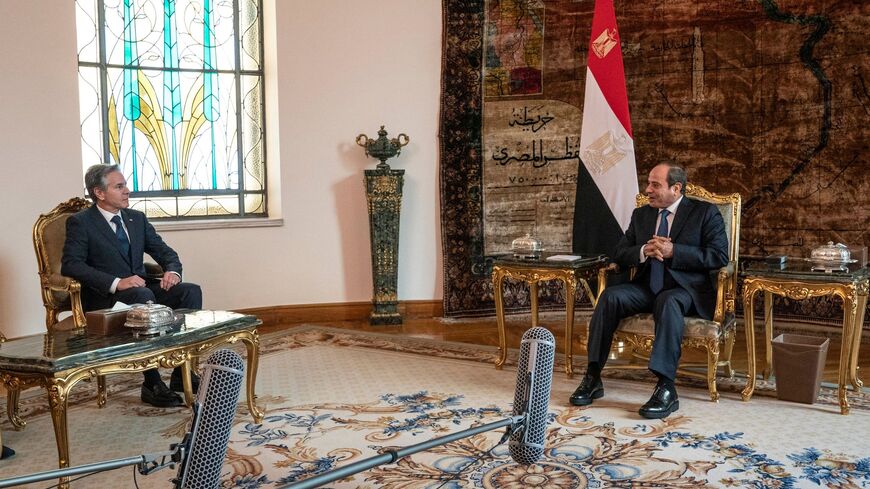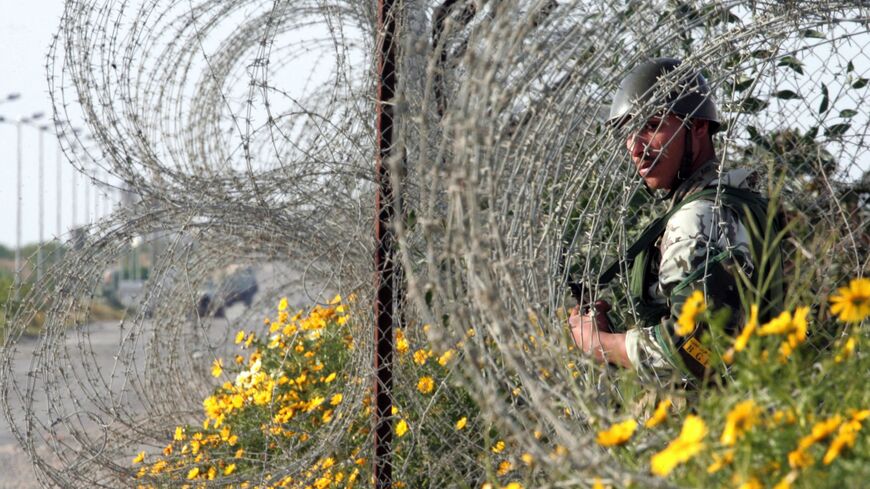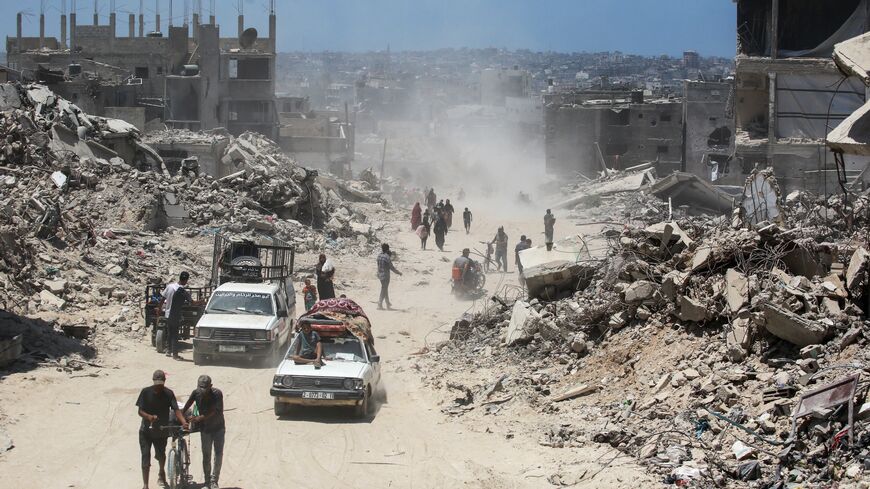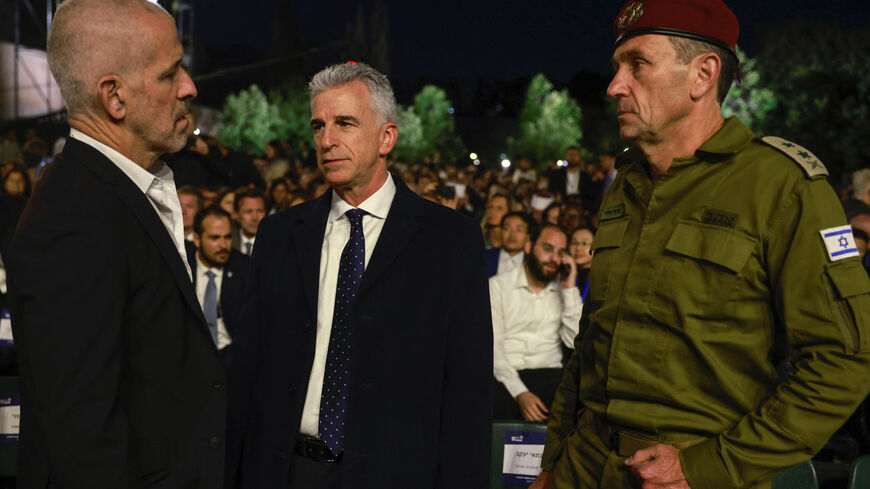Gaza cease-fire talks to resume in Egypt with Rafah, Philadelphi corridor in focus
Following two days of talks in Doha, the US, Egyptian and Qatari mediators are expected to resume negotiations on a Gaza cease-fire in Cairo this week in the presence of Israeli officials.
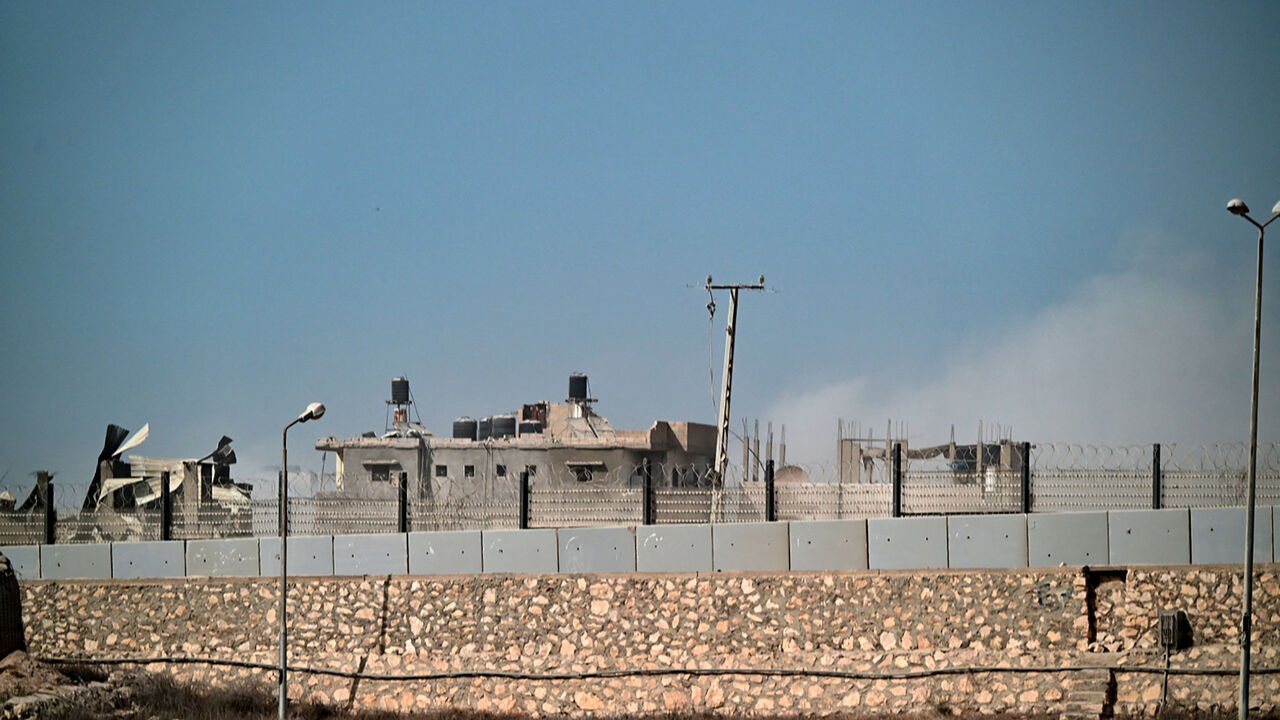
Negotiations on a cease-fire between Israel and the Palestinian Hamas group are due to resume in Cairo on Wednesday, after two days of talks in the Qatari capital, Doha, last week.
Diplomats are pushing for an agreement on a cease-fire in the Gaza Strip and a hostage and prisoner-release deal, which they hope will avert an expected response against Israel from Iran and Lebanon’s Hezbollah over the killing of Hezbollah commander Fuad Shukr July 30 in an Israeli airstrike in Beirut and the assassination of Hamas leader Ismail Haniyeh in a suspected Israeli attack in Tehran the following day.
On Monday, US Secretary of State Antony Blinken said the current round of talks may be the last chance to reach an agreement that would secure the release of the hostages held by Hamas in Gaza and end the Israeli war on the enclave.
“This is a decisive moment, probably the best, maybe the last, opportunity to get the hostages home, to get a cease-fire and to put everyone on a better path to enduring peace and security,” Blinken said during his meeting with Israeli President Isaac Herzog in Tel Aviv.
According to the State Department, Blinken is expected to head to Cairo on Tuesday as part of diplomatic efforts to conclude the cease-fire agreement through the “bridging proposal” presented by the United States, Egypt and Qatar last week.
Hamas dampens hopes for cease-fire
US-backed negotiations were held in Doha last Thursday in the presence of CIA Director William Burns, Egyptian General Intelligence Service Director Abbas Kamel, Israeli Mossad Director David Barnea and Qatari Prime Minister Sheikh Mohammed bin Abdulrahman bin Jassim Al Thani. Hamas boycotted the talks.
In a joint statement released Friday at the end of the talks, the US, Egyptian and Qatari mediators said they put forward a new proposal that “bridges remaining gaps” between Israel and Hamas to pave the way for “a swift implementation” of the cease-fire deal.
The statement said the talks would resume before the end of this week to strike the deal under the terms put forward during the Doha talks.
However, Hamas said on Sunday that it rejected the latest proposal, accusing Israeli Prime Minister Benjamin Netanyahu of putting “conditions and demands with the aim of thwarting the mediators’ efforts and prolonging the war.”
“The new proposal aligns with Netanyahu's conditions, especially his rejection of a permanent cease-fire and a complete withdrawal from the Gaza Strip, and his insistence on continuing to occupy the Netzarim Corridor, the Rafah crossing and the Philadelphi Corridor,” Hamas said in a statement.
Hamas added that it remains committed to the proposal announced by US President Joe Biden in late May and called on mediators to pressure Israel to implement it.
While no details of the latest proposal have been made public, a Hamas official revealed to the Saudi Asharq News site on Sunday some of its terms, including a reduced Israeli military presence in the Philadelphi Corridor — not a complete withdrawal from it — and Israeli supervision of the displaced people returning to the north via the east-west Netzarim Corridor, a militarized zone that splits Gaza, to prevent Hamas militants from returning to the north of the Strip.
According to the source, the Palestinian Authority would manage the Rafah border crossing under Israeli supervision. The proposal also grants Israel the right to oppose the release of a minimum of 100 Palestinian prisoners and deport some of the prisoners who would be released under the deal.
Also, there would be no full Israeli military withdrawal from Gaza, and a permanent cease-fire would be discussed in the second stage. If Hamas does not agree to the Israeli demands, the army will resume its military operations in Gaza, according to the proposal.
A senior source close to the negotiations denied Monday the claim made by Hamas that Netanyahu is allegedly trying to sabotage a deal. “Hamas’ announcement is an attempt by the group to improve its negotiating position. … We are taking this calmly and continue working toward the summit meeting that should take place toward the end of the week," Maariv quoted the source as saying.
For his part, Netanyahu backed the US proposal that "takes into account Israel’s security needs, which he strongly insists on,” the prime minister's office said in a statement Monday.
Netanyahu's comments came following a three-hour meeting with Blinken in Israel.
Philadelphi Corridor progress?
An Israeli negotiating delegation returned to Israel on Monday after a brief visit to the Egyptian capital, Cairo, a day earlier, Israel’s public broadcaster Kan reported. This delegation did not include any of the leading negotiators such as Mossad chief Barnea and Shin Bet’s Ronen Bar, but a lower-level technical team.
According to Kan, the team discussed the major obstacle to reaching a deal with Hamas: control over both the Philadelphi Corridor and the Netzarim Corridor.
A technical team also stayed in Doha after the chief negotiators came back to Israel on Friday, reported Maariv.
During the Egyptian-Israeli talks in Cairo on Sunday, Egypt reportedly accepted Israel’s demand not to set a timetable for its withdrawal from the Philadelphi Corridor, in a shift from its previous position rejecting the Israeli occupation of the strip of land along Gaza's border with Egypt.
Citing a source familiar with the talks, the Lebanese Al-Akhbar paper, close to Hezbollah, said the two parties agreed on the “reduction” of the number of Israeli soldiers present in the corridor “in preparation for their withdrawal at a later time.” Egyptian officials requested that “the complete withdrawal be completed as soon as possible,” according to the same source.
In late May, Israeli forces took full control of the Philadelphi Corridor, a 14-kilometer-long (8 miles) demilitarized strip of land between Gaza and Egypt, drawing sharp criticism from Egypt at the time.
Israel has been leading a major air and ground campaign in the Gaza Strip since Hamas’ cross-border assault on Oct. 7, 2023. More than 40,000 people have been killed in the enclave since then, according to the Gaza Health Ministry, with over 1.9 million people forced to flee their homes, per UN estimates.
During their onslaught in southern Israel, Hamas militants killed around 1,200 people and took over 240 others hostage.
The US, Egyptian and Qatari mediators managed to secure a brief seven-day truce late last November, during which Hamas released a total of 110 hostages and 240 Palestinian prisoners held in Israeli jails were freed.



